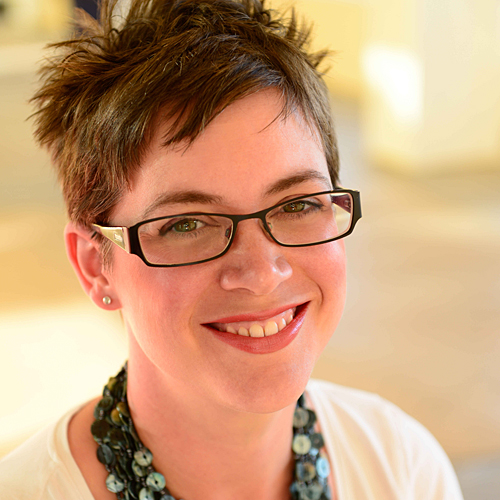 Infant & Child Health & Development Online Course(s) & Continuing Education
Infant & Child Health & Development Online Course(s) & Continuing Education
Access the latest clinical skills and research for Infant & Child Health & Development for Neonatology professional training. These Infant & Child Health & Development online courses provide practice-changing skills and valuable perspectives from leading global experts. This Infant & Child Health & Development education has been accredited for a variety of CEUs / CERPs and can be accessed on-demand, at your own pace.
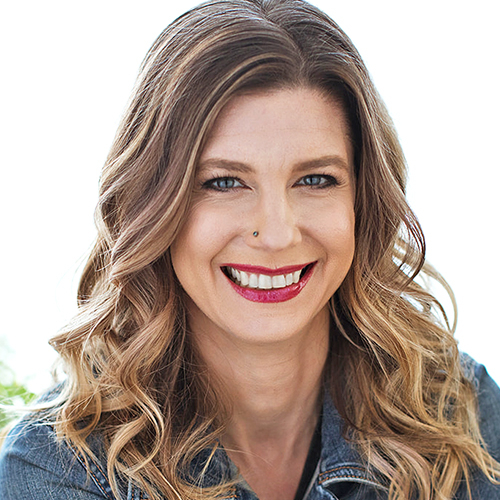
A Neuroscience-Based Paradigm Shift for Parenting Kids with Dysregulated Behaviors

Robyn Gobbel, LMSW-Clinical, has over 15 years of practice in family and child therapy experience, specializing in complex trauma, attachment, and adoption. Robyn is a therapist, trainer, and consultant who recently relocated to Grand Rapids, MI from Austin, TX.
Robyn's diverse clinical training includes EMDR (including EMDR adapted for children with attachment trauma), Somatic Experiencing, Theraplay, Trust Based Relational Intervention®, Circle of Security Parent Educator, The Alert Program® and Yogapeutics Aerial Yoga Level 1 Teacher Training. Robyn has integrated these training modalities with a foundation of attachment theory and the relational neurosciences to create an attachment-rich, sensory-sensitive, and relational neurosciences supported healing environment for children and families.
Robyn consults, teaches, and trains extensively throughout the US, including previously as an instructor for the Foundations of Interpersonal Neurobiology Certificate Program at Portland Community College. She was an instructor with the Adoptive & Foster Family Therapy Post-Graduate Certificate Program and has served on the working board of the Global Association for Interpersonal Neurobiology Studies (GAINS).
Research emerging from Relational Neuroscience, including polyvagal theory, regulation theory, and the neurosequential model of development, has shifted our understanding of the origins of behavior. When parents, caregivers, and child development professionals are armed with the latest science about what behavior really is, they increase their capacity for connecting with dysregulated behavior in a way that promotes positive growth and development of the relational, social, and behavioral brain of the child. This workshop will briefly summarize the latest research from the relational neuroscience and then move into practical interventions that will help caregivers soothe difficult behaviors while promoting attachment, regulation, and stress resilience.
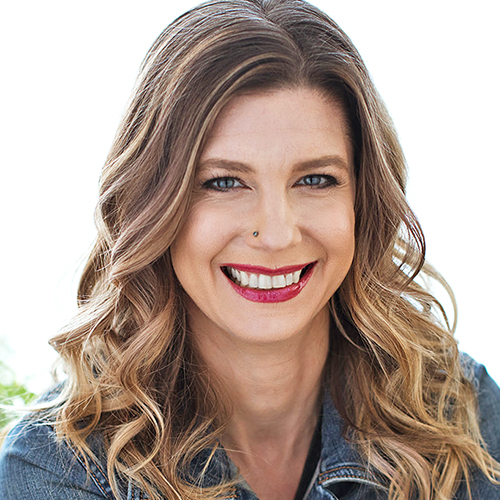
View Details / Enroll
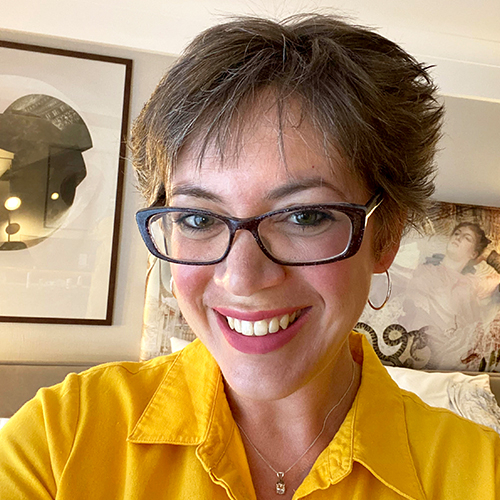
Addressing Complex Sleep Problems While Optimizing Breastfeeding

Lyndsey is an experienced paediatric nurse, children’s public health nurse, International Board Certified Lactation Consultant, Holistic Sleep Coach, researcher and responsive parenting advocate. She has worked in hospitals, clinics, the community and within clients’ homes for 20 years, serving within the UK NHS, in private practice and voluntarily.
The co-founder and clinical director of the Holistic Sleep Coaching program, Lyndsey regularly teaches internationally, as well as providing mentorship for newer sleep coaches. She is passionate about responsive feeding, gentle parenting and promoting parental confidence and well-being.
With Professor Amy Brown, she is the co-founder of Thought Rebellion – an education and publishing company seeking to inspire, challenge and equip professionals and writers in the parenting, lactation and perinatal space with an evidence based revolution.
Lyndsey is currently a PhD researcher at Swansea University, exploring the needs and challenges of medically complex breastfed infants and children. In 2019 she set up the Breastfeeding the Brave project to raise awareness of the unique breastfeeding needs of chronically, critically, and terminally ill children in the paediatric setting. The mother of a childhood cancer survivor, she often talks about the impact of chronic serious illness on families, and seeks to support other families living through a serious childhood illness.
Lyndsey is a respected international speaker and teacher, and regularly speaks out against the dominant sleep training culture, as well as advocating for the rights of families to receive high-quality, compassionate and expert support. She is the author of Holistic Sleep Coaching (2018), Let’s talk about your new family’s sleep (2020), Still Awake (2021), Breastfeeding the Brave (2022) and co-author of The Writing Book (2022).
Topic: Breastfeeding Children with Cancer - [View Abstract]
Topic: More Support in a Coffee Shop Than in the Hospital: Experiences of Breastfeeding Children With Medical Complexity - [View Abstract]
Topic: Supporting Families With Sleep While Optimising Attachment and Responsive Feeding - [View Abstract]
Topic: You Can't Sleep With Your Foot On The Gas Pedal: How To Improve Sleep By Tapping Into Calm - [View Abstract]
Many health, lactation, and childcare professionals find themselves in a position where the families they work with require support with sleep. Without readily accessible, evidence-based, gentle and effective sleep support, some of these families turn to sleep training which often leaves breastfeeding abandoned in the quest for more sleep.
Understanding key sleep biology principles, and being able to apply these to both simple and complex sleep scenarios can empower parents with the tools they need to maintain breastfeeding while also getting more sleep. In this presentation, we will explore some key concepts, and apply them to some practical real-life examples of both adults and infant-related sleep problems.

View Details / Enroll

Babies Cry to Communicate, Not to Manipulate... Non-Medical Reasons for Crying: An Anthropological Approach

Katrien Nauwelaerts graduated as a prehistoric archaeologist in 2005. She's the mother of three breastfed children and the administrator of the Dutch breastfeeding-website Borstvoeding Aardig, https://borstvoeding.aardig.be. Katrien worked as a volunteer breastfeeding-counsellor, provincial coordinator and training manager for the Belgian breastfeeding organisation Borstvoeding vzw between 2010-2014. Up tot 2018 she was the founder and president of Aardig Leven vzw, a non profit ecological organisation. In 2013 she became an IBCLC. Since 2013 she's working as a lactation consultant at her own private practice Borstvoeding Aardig. She became a nutritionist and a herborist in 2014. Katrien shares her experiences and knowledge on lactation consulting as a public speaker since 2014.
Topic: Breastfeeding and The Use Of Herbs - [View Abstract]
Topic: Young Mothers and Breastfeeding in Belgium - [View Abstract]
There is scientific research that says that breastfeeding duration shortens when parents experience their baby as a baby who cries a lot.
There are all kinds of medical reasons why a baby is crying. Crying is a way of communication for a baby. It's a cry for help.
But what if there are no obvious medical reasons for a baby's crying behavior?
This lecture explains sociological and anthropological factors that can influence crying behavior in babies.
Sometimes parents have false expectations about parenting and baby behavior. Sometimes cultural assumptions make parents believe they have a crying baby when they actually haven't. And some cultural or anthropological parameters can strengthen the crying behaviour in a baby. Learn more about normal newborn crying behaviour and how to help parents understand their newborn.
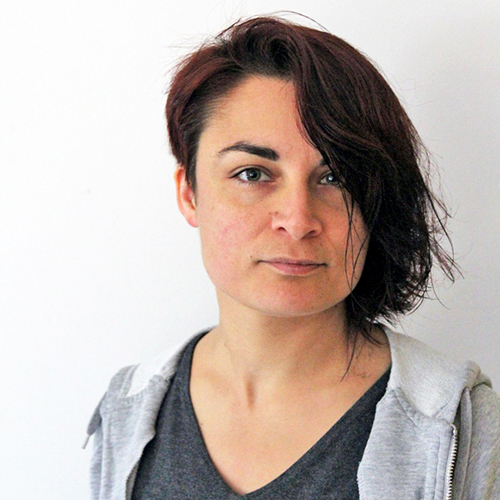
View Details / Enroll


Helen Ball trained in Human Biology and Biological Anthropology, obtaining her PhD at the University of Massachusetts, Amherst in 1992. She established the Parent-Infant Sleep Lab at Durham University in 2000, was promoted to Professor in 2007 and served as Head of the Anthropology Department 2013-2016.
Her research examines the sleep ecology of infants and their parents including attitudes and practices regarding infant sleep, behavioral and physiological monitoring of infants and their parents during sleep, infant sleep development, and the discordance between cultural sleep preferences and biological sleep needs. She conducts research in hospitals and the community and contributes to national and international policy and practice guidelines on infant care.
In 2016 she was appointed as Chair of the Scientific Committee for the Lullaby Trust, and in 2018 Durham University received the Queen’s Anniversary Prize for Further and Higher Education for Helen’s research and outreach work. She is a Board Member of ISPID (the International Society for the Study and Prevention of Infant Deaths) and directs the Durham Infancy & Sleep Centre (DISC) and Baby Sleep Information Source (Basis).
Topic: How do Digital Age parents cope with their infants at night? - [View Abstract]
Many assumptions exist about the origins and purpose of baby-boxes and their use as a safe infant sleep space; this misinformation needs correcting, especially as it relates to SIDS-reduction. Baby-box schemes take multiple forms from those motivated by social welfare to those motivated by commercial profit. Programmes offering carboard baby boxes to parents in England began in some NHS Trusts in 2016. We examined the pros and cons of English baby-box schemes via an independent evaluation conducted using telephone interviews and online surveys with healthcare providers and parents in all 7/9 NHS regions of England where baby-box schemes were established 2017-2019. The objectives were to produce recommendations for organisations considering involvement in future schemes. We found baby-box schemes changed over time, and were complex to run and monitor. Both parents and practitioners were misinformed about their purpose and origins. The English experience of partnership schemes between healthcare facilities and commercial box-providers reveals some success stories, along with multiple points of ambiguity, unanticipated difficulty, and concerns for infant safety. Sixteen recommendations are proposed for healthcare providers and organisations considering commercial - health-provider baby-box partnerships in future.
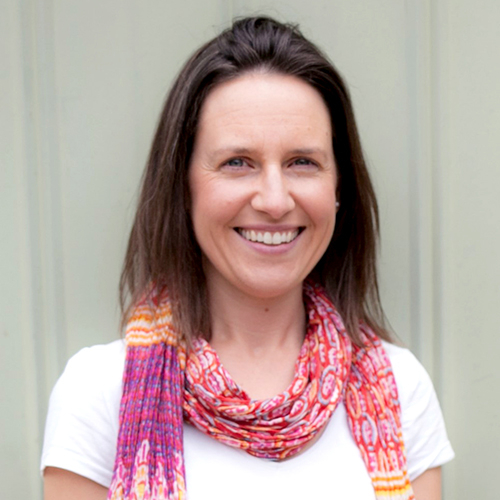
Back to Birth: The Power of Primitive Reflexes to Rebuild Brain Foundations

Nikki is mum to 3 wonderful boys, one with significant physical disability. Diving deep into the world of disability, child development and neurobiology due to her son's Cerebral Palsy, Nikki learnt to look beyond standard protocols when seeking interventions for her family to find additional knowledge and understanding that can be incorporated with traditional approaches to enhance and personalise therapy and care. This approach ultimately led Nikki to discover the power of primitive reflex integration.
Nikki deeply believes that life and circumstances, no matter how entrenched they seem, can always be improved. She thoroughly enjoys the opportunity to work with families and individuals to realise the individuality of each family member and discover the increased health, development and ease that's achievable.
Nikki began her journey with Rhythmic Movement Training (RMT) in Melbourne in 2013 and was astounded with the positive changes such an easy and small intervention could make. She has since worked with adults and children, using RMT, to integrate retained primitive reflexes and to ease their associated challenges. She particularly enjoys working with children and delights in seeing them actively participate in the sessions and very quickly own and take control of their sessions. The profound improvements and changes they see and feel in their bodies continues to amaze her.
Nikki balances her RMT work with days in the classroom as a relief teacher, relieving across the years from Reception to Year 12. Being in the classroom is always a fascinating and enjoyable time assisting students and watching reflexes at work. Nikki is also fascinated in the transformative power of epigenetics and is a co-developer of ph360's Parenting360 Course.
In her play time, Nikki loves surfing, reading, pilates and running to keep her body feeling alive and moving and to keep life feeling manageable!
The primitive reflex system provides the very first foundational layer of development in the brain. Without reflexive movement to trigger brain development, the brain would not develop at all. As this development progresses, the activity of primitive reflexes in the body diminishes to the point that primitive reflexes are considered “integrated.” However, what happens when this doesn’t happen as designed and primitive reflexes are instead retained? Growing amounts of research are identifying the links between reflex retention and a wide variety of motor, learning, cognitive, physical, emotional and postural challenges.
This presentation examines some of the main primitive reflexes and explores what happens when the primitive reflex process is interrupted.
How is it interrupted? How do these interruptions manifest? And, most importantly, what can be done therapeutically to continue and support the primitive reflex integration process.
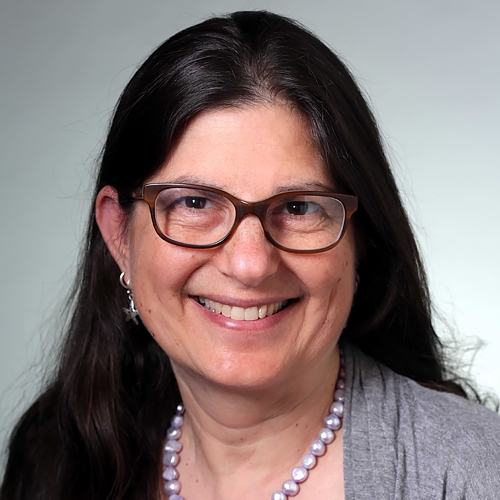

Melissa Bartick, MD, MSc, FABM works as a hospitalist at Mt. Auburn Hospital in Cambridge MA, is an internist and is an Assistant Professor in Medicine at Harvard Medical School. She has numerous breastfeeding publications in peer-reviewed journals. She served as the chair of the Massachusetts Breastfeeding Coalition from 2002 to 2014, where she was also a founder of Ban the Bags. She served on the Board of Directors of the United States Breastfeeding Committee from 2009-2015. She has served on the Board of the Academy of Breastfeeding Medicine since 2019, where she has coauthored clinical protocols, including the 2020 Bedsharing and Breastfeeding protocol. She was founder of the Breastfeeding Forum of the American Public Health Association, where she served two terms as chair. She is founder and co-chair of her state’s Baby-Friendly Hospital Collaborative. She has blog contributions to the Huffington Post, the WBUR CommonHealth Blog, among others. Dr. Bartick received her BA from the University of Virginia and holds an MSc in Health and Medical Sciences from University of California, Berkeley and an MD from University of California, San Francisco. She works as a hospitalist at Mount Auburn Hospital and is the mother of two grown sons. As of June 2020, she is pursuing an MPH at Harvard School of Public Health.
Topic: Missing the Evolutionary Boat: How Viewing Infant Sleep Out of Context Fails Parents and Children - [View Abstract]
Bedsharing promotes breastfeeding, but many authorities recommend against bedsharing for all mothers, citing safety concerns, particularly risk of sudden infant death syndrome or suffocation risks. Here we will review the normal physiology of mother-infant sleep, and the historical context in which such recommendations evolved. In addition, many populations have high rates of bedsharing with low rates of death. In this context, we will review the evidence around bedsharing and the most current evidence-based recommendations. Some risk factors for SIDS are more powerful than others, and we will review the best ways to minimize such risks, including a social-determinants of health approach. In some circumstances, bedsharing may carry particular risks and it is important to be able to discuss these issues with parents without stigma. We will discuss counseling of all parents in the “risk-minimization” approach, which would also allow for promotion of breastfeeding.
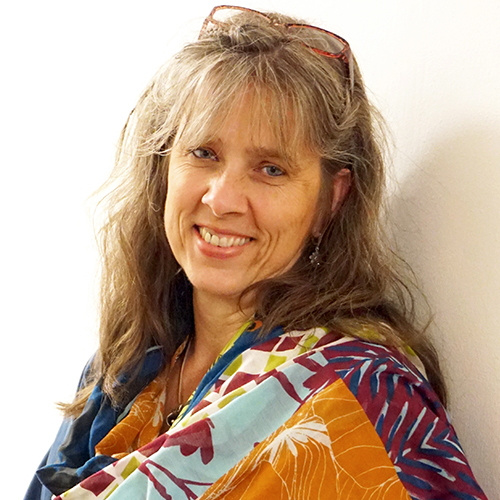
Building Strong Children: The Power of Buffering Protection Through Responsive Parenting and Caring Communities

Marianne is a mother of four grown-up, home-birthed and breastfed daughters and granny of five beautiful home-birthed, breastfed grandchildren. After a personal experience with breastfeeding practices in a hospital, she became a volunteer for the Dutch breastfeeding association in 1994 and for many years, she led big groups for pregnant and breastfeeding mothers in her home town.
She became an IBCLC in 2008 and launched her private practice, from which she does consultations, book translations (such as James McKenna’s book ‘Sleeping With Your Baby’ and recently ‘Safe Infant Sleep’, and Jill and Nils Bergman’s book ‘Hold Your Prem’), blogging and writing on youth healthcare, advocating for policies that generously take neurophysiological and sociocultural convictions into account. Translating and avid reading widened Marianne’s insights and field of interest, leading her her to Cultural Anthropology & Development Sociology at the University of Amsterdam and subsequently a master’s degree in Medical Anthropology & Sociology.
Combining several fields, she co-founded the initiative ACE Aware NL early 2020, chiming in with similar movements in Scotland and California, US. The aim is to increase awareness around Adverse Childhood Experiences and their impact on adult health and wellbeing. Now that science abundantly shows the importance of sensitive and responsive parenting for overall health and wellbeing, all sectors in society deserve to know what a world of difference they can make in a child's life if they succeed in incorporating trauma-sensitive approaches . Marianne expects to remain strongly tied to this field for the rest of her life.
There is a growing awareness about the impact of Adverse Childhood Events or ACEs and the toxic stress they can create during a child’s formative years. So far much of the research and conversation has focused on identifying ACEs and the negative life-long consequences they can have. How can we reframe the conversation to shift from focusing on reacting to negative outcomes, to creating the caring connections that promote healthy brain development and stress regulation? To feel healthy, people of all ages look for a meaningful existence with loving and caring relationships. In the Salutogenic Model of Health this is called the Sense of Coherence (SoC). When the SoC is under strain, this can cause pain and trauma that both parent and child express in behaviours that are difficult to handle for themselves and others. As innately and intensely social beings, humans actively try to connect to others to build positive, contextualised relationships that support health and wellbeing and create social resources. Therefore, secure childhoods and nurturing social environments are likely to increase lifelong resilience. Looking at health from a salutogenic perspective can help us understand that health and wellbeing cannot simply be depoliticised and decontextualized as an individual responsibility. ACEs are not always preventable, but we have the power to help both parents and professionals create the positive childhood experiences (PCEs) that buffer the negative ones and create resilience.
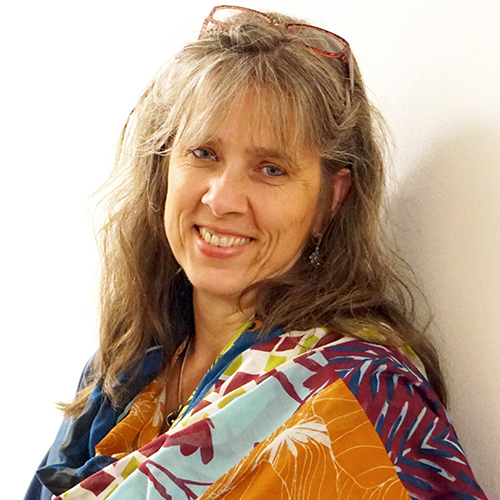
View Details / Enroll
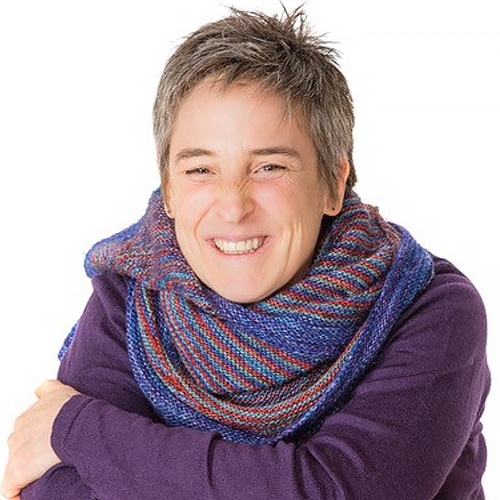
Collaborative Approaches To Educating New Families On Prenatal Sleep Expectations

Erin is a Parent Educator in Ottawa, Canada and the mother of four young adults, including twins. After working in the area of community mental health as a Registered Social Service Worker, she jumped into Prenatal and Parenting education with the Ottawa Childbirth Education Association where she has been designing and providing classes for expectant parents, grandparents, and families expecting multiples for the last 20 years. She divides her time between teaching a class called Bringing Baby home to expectant parents, Normal Infant Sleep classes and working as a Postpartum Doula. In 2018 she returned to school to complete her M.ed for Healthcare Professionals.
Parents experience a lack of formal and informal education on normal newborn sleep patterns. This absence of information through group prenatal classes or perinatal appointments with healthcare providers results in unrealistic expectations of life with their newborn. Coupled with geographic isolation from extended family support systems or extended family members who have different recollections of newborn sleep patterns, parents turn to crowdsourcing information on social media. The prolific advertising of sleep training on social media platforms increases parental fear, leaving parents overwhelmed with the increasingly contradictory information on sleep and strategies for coping.
This presentation will address the situations that lead to unsafe bed sharing and social pressure to sleep train. Participants will have an understanding of the concerns that parents bring to sleep classes for both infants and toddlers. Collaborative strategies for responsive nighttime parenting that respects brain development; attachment theory, nighttime feeds, and balanced with parents need for sleep and self-care will be the focus. Opportunities for education that include online, individual and group opportunities will be offered including a collaborative effort between parents, family, community and healthcare providers.
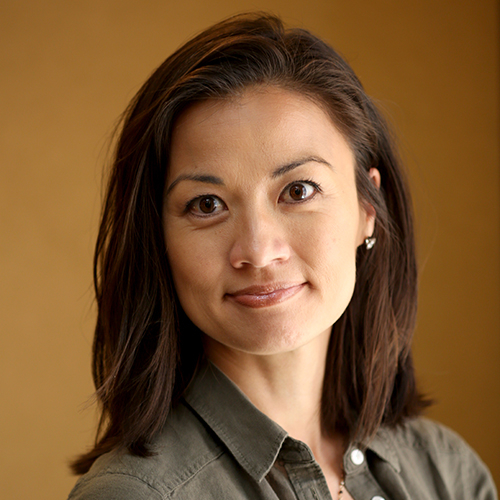

Nim Tottenham, PhD is a Professor of Psychology at Columbia University and Director of the Developmental Affective Neuroscience Laboratory. Her research examines brain development underlying emotional behavior in humans. In particular, her laboratory investigates the interplay between brain development and caregiving experienced by humans. Her research has highlighted fundamental changes in brain circuitry across development and the powerful role that early experiences, such as caregiving and stress, have on the construction of these circuits. She has authored over 130 journal articles and book chapters. She is a frequent lecturer both nationally and internationally on human brain and emotional development. She is a Fellow of the Association for Psychological Science and of the Society for Experimental Psychologists, and her scientific contributions have been recognized by the National Institute of Mental Health BRAINS Award, the American Psychological Association’s Distinguished Scientific Award for Early Career Contribution to Psychology, and most recently by the National Academy of Sciences Troland Research Award and the Flux Congress Linda Spear Award.
Human brain development is very slow, but there is value to this slow pace. This pace maximizes the chances for learning from developmental experiences (for example, caregiving by parents) and by doing so, developing highly sophisticated emotional behaviors by adulthood. Brain circuitry involving the amygdala and medial prefrontal cortex (mPFC) support fundamental aspects of emotional behavior (learning about, responding to, and regulating emotions), and in this talk, I will present studies that describe their development, including functional magnetic resonance imaging data showing age-related changes in amygdala-mPFC circuitry. I argue that the development of this circuitry in humans is intimately associated with caregiving, such that parents exert significant and enduring neural modulation during development.
The findings presented are highly consistent with the animal literature showing both large changes in amygdala-mPFC circuitry throughout development, as well as the large influence of parental care in shaping this neural circuitry. This talk will focus on both typical development as well as development following caregiving-related stress showing that early life environments may influence development through learning and modification of developmental trajectories. These age-related changes will be discussed in terms of potential developmental sensitive periods for environmental influence.
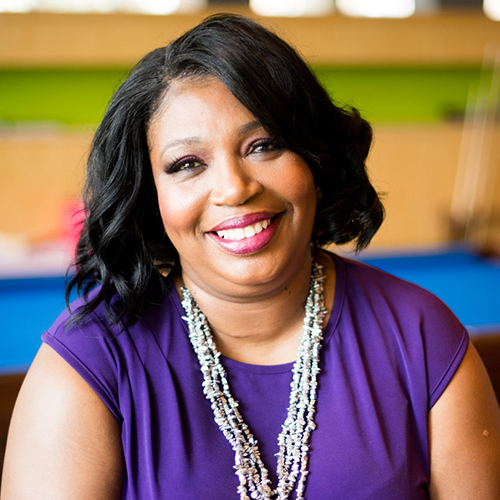
Enhancing Caregiver Attachments Through Imaginative Play and Emotional Storytelling

Althea T. Simpson, MBA, MSW, LCSW, RPT-S, is an innovative trainer, psychotherapy private practice owner, founder and President of Unicorn Life Training and the Black Play Therapy Society, and host of the Chronicles of A Play Therapist podcast. She is the author of Hurt to Healing: Child Witnesses of Domestic Violence and Their Invisible Injuries. Althea has a diverse background including research, mental health, and organizational consulting. A Certified LEGO® SERIOUS PLAY® Facilitator reinforcing a process of creative thinking and problem-solving, Althea facilitates thought-provoking and experiential skill enriching workshops for mental health professionals, corporations, and organizations throughout the United States. Althea’s passion is utilizing the healing powers of play to effect change on an individual and organizational level.
IG: @altheatsimpson
IG: @brickmagicplaytherapy
Facebook: https://www.facebook.com/unicornlifetraining
Twitter: @altheatsimpson
TikTok: @altheatsimpson
Youtube: https://www.youtube.com/channel/UCexheSp4-M-A-sW5w1aU5eQ
Play is an important milestone for babies and toddlers as it helps with development and reasoning skills. Play also holds a crucial role in providing a safe, caring, and protective attachment relationship between caregiver and child. Through pretend play, caregivers can help children express thoughts and emotions. Emotions are responses to different stimuli and children can learn appropriate ways to work through their emotions. Through storytelling caregivers can help children identify emotions without labeling emotions as “good” or “bad.” Caregivers who engage children in reading and storytelling promote brain development and imagination, develop language and emotions, and strengthen relationships. Learn more about the importance of play, the stages of development and how play works before language and memory are developed and examples of activities that encourage imaginative play.




